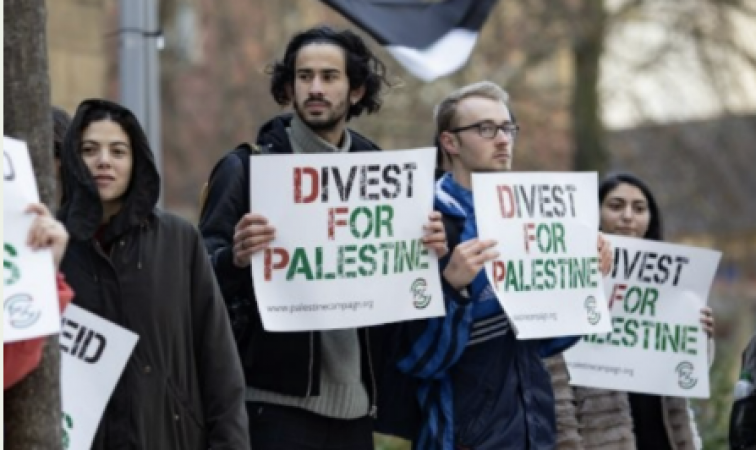
London: The UK Parliament's passage of a bill that seeks to limit the influence of the Boycott, Divestment, and Sanctions movement in Britain has drawn criticism from Palestinian rights groups and NGOs.
After hours of discussion, the Economic Activity of Public Bodies (Overseas Matters) Bill was approved by the House of Commons late on Monday by a vote of 268 to 70.
If a public organisation in the UK engages in a boycott or other campaign against a specific territory, the bill allows for fines, unless it is in accordance with the government's own foreign policy.
Also Read: North Korea seems to have relaxed the COVID mask requirement.
However, it is believed that the new laws are intended to target the pro-Palestinian BDS movement, which is backed by a number of significant British councils.
The bill, according to communities secretary Michael Gove, will guarantee that foreign policy remains a responsibility of the UK government rather than smaller public entities.
He asserted that the BDS movement, which urges economic sanctions against Israel over its treatment of Palestinians in the Occupied Territories, has contributed to a "increase in antisemitic events."
The "dreadful" proposed legislation would restrict local democracy in the UK and take away public organisations' capacity to exercise due diligence, according to Chris Doyle, director of the Council for Arab-British Understanding, who spoke to Arab News.
Also Read: Russia claims that the West allowed drone attacks close to Moscow
He claimed that the bill would fail to stop antisemitism and would be a "significant restriction on freedom of speech and conscience."
The proposed legislation, according to Doyle, would also go against the UK's long-standing legal stances towards Israel and the Occupied Territories and provide Israel with a "protective shield" over its crimes.
The UK's long-standing foreign policy towards Israel calls for a two-state solution to put an end to Israel's military occupation of the Palestinian territories.
According to this stance, the growth of Israeli settlements in the Occupied Territories is prohibited by international law as a barrier to peace.
Doyle cautioned that Israel would be the only nation in the world from which a local British public body could not withdraw investments if the bill were to become UK policy.
"While Israel is unleashing some of its most extreme violence against the Palestinian people in decades, the British government has chosen to single it out by name in the anti-boycott bill, alongside the 'occupied Palestinian territories' and the 'occupied Golan Heights,' as territories that the law explicitly protects from public sector boycotts," Peter Leary, campaigns officer at the Palestine Solidarity Campaign, told Arab News.
This bill will actively encourage the well-documented discrimination against Palestinians and impunity for transgressions of international law.
For the first time, British legislation will require Israel and the territories it illegally occupies to be treated in the same way, breaking with decades of international consensus on the illegality of settlements, despite claims that foreign policy remains unchanged.
Also Read: Before the US July 4 holiday, three mass shootings left ten people dead and 38 injured
The bill has also drawn criticism from lawmakers, including Alicia Kearns, chair of the Foreign Affairs Committee for the ruling Conservative Party.
She argued that the legislation's text should be changed to eliminate references to Israel and Palestine because they "basically give Israel exceptional impunity."
"Public bodies should not be pursuing their own foreign policy agenda," a UK government spokesperson said. Individuals, including publicly elected officials, are exempt from the boycott ban when engaging in private acts covered by the Human Rights Act.